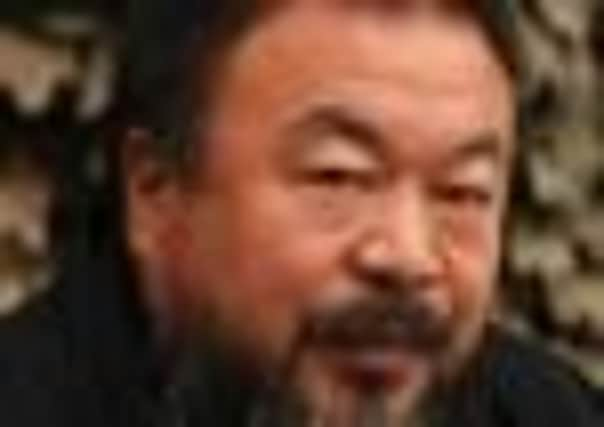Book review: Hanging Man: The Arrest Of Ai Weiwei by Barnaby Martin


Hanging Man: The Arrest Of Ai Weiwei by Barnaby Martin
Faber & Faber, £14.99
Through Ai’s work and imprisonment Barnaby Martin attempts to discern the workings of the Chinese state apparatus, its relationship with modern art and how digital communication is changing and challenging the status quo in China.
Ai – who designed the Bird’s Nest for the Beijing Olympics and the Sunflower Seeds installation for the Tate’s Turbine Hall – might have seemed too prominent to be subject to such strong-arming. As Martin shows, however, celebrity is no guarantee of safety.
Advertisement
Hide AdAi’s father was the poet Ai Qing, who was much revered by the Communists, and who debated the role of literature with Mao before the Yan’an Rectification Movement, part of which was the “thought reform” approach to culture. Nevertheless, Ai Qing was purged in 1958 and sent to the edge of the Gobi Desert with his family. Their home was a hole in the ground, and the most famous poet of the day was set to work as a toilet cleaner.
There is a dark irony that his son would eventually become widely seen as the translator of the ideas of the Dadaist Marcel Duchamp into a Chinese idiom; Duchamp being, of course, the artist who put a urinal into a gallery and called it Fountain. Martin is good on how Dadaism, in Chinese art, recovers some of the political provocation that evaporated as it morphed into Pop Art in the States: Ai’s spade handle grafted on to a violin is a very different “ready-made” in the context of the Cultural Revolution, when artists were sent for re-education amongst the agricultural labourers.
Ai comes across as a humane individual – his comments on how the guards were as imprisoned as he was show a great capacity for empathy, and there is the delightfully surreal image of Ai explaining contemporary art to his interrogators (the Sunflower Seeds project was, they claimed, an obvious tax dodge since its value was unrelated to the cost of the materials and labour).
Martin bolsters the narrative and interview elements of the book by also interviewing Liao Yiwu, whose reportage stories about safe-crackers, Falun Gong members, prisoners who think they’re the emperor, lepers and parents of students killed in Tiananmen Square are a kind of (banned) dirty realism for the superpower; and the poet Mang Ke, who introduced free verse forms into Chinese. These parts might have been extended. It would have been useful, as a counterpart, to hear from Mo Yan, the first Chinese Nobel Laureate who is not a dissident, or some of the novelists who have gradually been making an impact on the notoriously insular Anglophone market: Yu Hua, the author of Brothers; Jiang Rong, author of Wolf Totem, who was exiled to Mongolia, or the satirist Yan Lianke.
Ai was, through his father, part of the “red aristocracy” – indeed, he was allowed to travel to America in the 1980s during the brief thaw under Deng Xiaoping, where he roomed with the violinist Tan Dun and the director of Farewell My Concubine, Chen Kaige.
Some of Ai’s work seems designed to push censorship as far as possible: the photograph of him jumping naked with a toy alpaca covering his genitals is called Grass mud horse covering the middle, a near homophone of “F*** your mother, the Communist Party Central Committee”.
Advertisement
Hide AdTesting the limits of provocation in China seems a far more radical gesture than Gilbert and George’s phalluses, Tracey Emin’s unmade bed or Jeff Koons’ pornographic self-portraits.
Occasionally, Martin reaches for analogies that are slightly too pat (such as Orwell’s 1984 or Huxley’s Brave New World), and he has an evident, understandable distaste for some of the apologists for the regime.
Advertisement
Hide AdHanging Man is a compelling study of Ai’s work and significance, perhaps stronger as art criticism than as a polemic against the slow pace of change in the higher echelons of the Communist Party. It is not a story that is over yet.